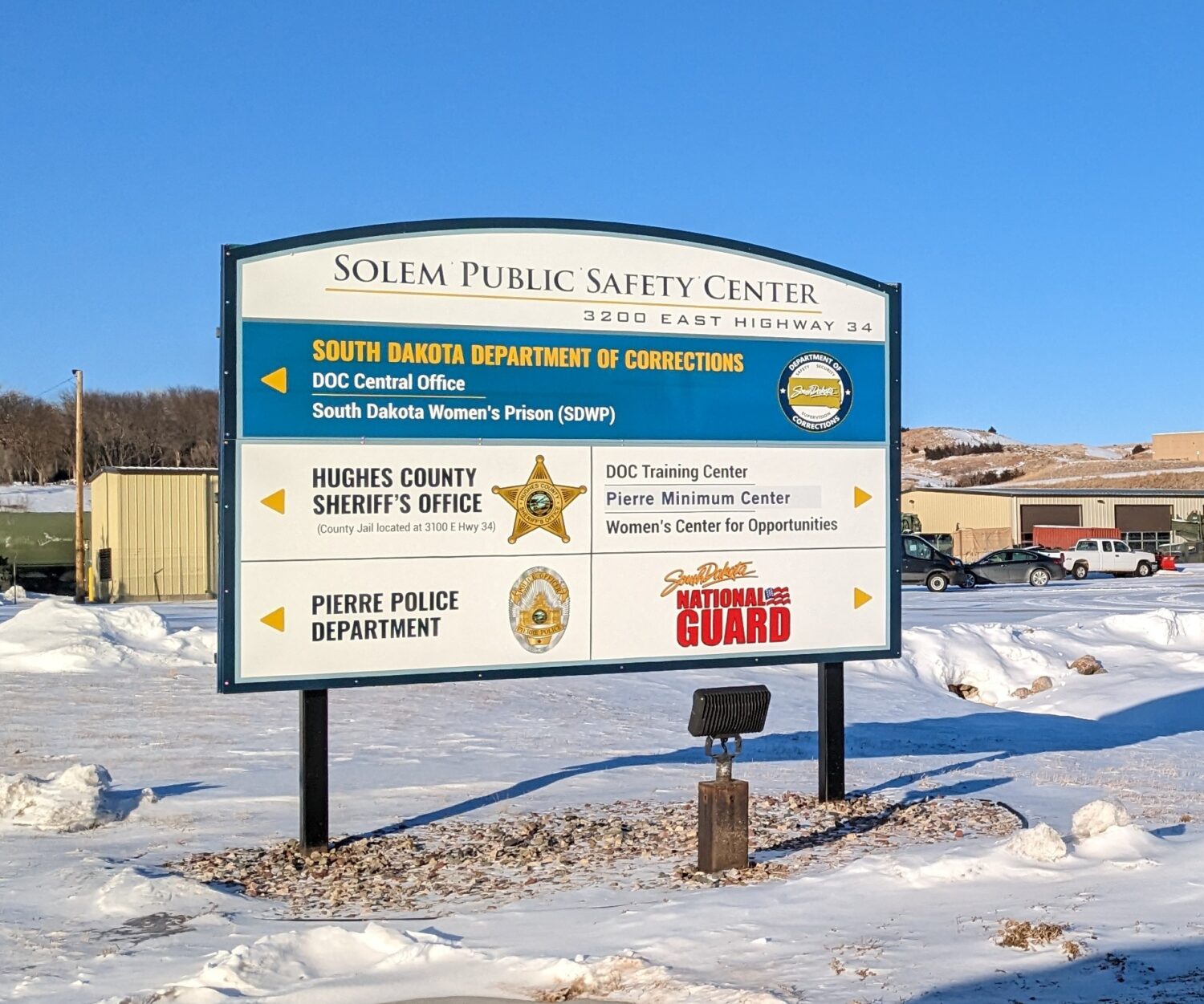
John Hult, South Dakota Searchlight
Lawmakers on an audit committee got a rundown Monday about a weekslong lockdown at the South Dakota State Penitentiary in Sioux Falls, but every word that hadn’t already appeared in state prison press releases was spoken behind closed doors.
Department of Corrections Secretary Kellie Wasko spent about 10 minutes of the state’s Government Operations and Audit Committee in Pierre walking through 12 pages of slides on the lockdown and alleged contraband uncovered.
The committee moved to go into executive session to discuss “juvenile matters” as well as an undefined set of “personnel and contractual matters” as soon as Wasko finished her prepared remarks. Public boards, commissions and local governments are required to abide by open meetings laws when entering executive session, but the Legislature is exempt.
Sen. Reynold Nesiba, D-Sioux Falls, began to ask a question before the body moved to close its doors. Rep. Ernie Otten, R-Tea, cut him off.
“We’re going to hold all questions until we go into executive session,” Otten told him.
After an hour and 20 minutes of executive session, the committee gaveled back in for less than two minutes and fielded two comments.
“I’m confident to say that everything that I’ve heard, and that is being done, is being done for inmate safety, staff safety and community safety,” said Rep. Drew Peterson, R-Salem.
Otten said he seconded the sentiment.
“It has been very informative, and I’m glad that we do have the personnel that we’ve got that are rectifying these problems,” Otten said. “So from the bottom of my heart, thank you.”
It’s unclear how much of the executive session was devoted to discussions of the lockdown.
This summer, under questioning from the same committee about outbreaks of violence at Mike Durfee State Prison in Springfield, Wasko said she would be willing to give committee members the “nitty gritty” of security incidents once the DOC finished investigating, but only behind closed doors.
She also said at that point that she doesn’t believe she needs to answer to the state’s Corrections Commission, a board of lawmakers and citizens empowered under state law to advise the department on correctional and criminal justice issues. She would repeat that assertion at a commission meeting a few weeks later.
At the Capitol on Monday, Wasko walked through information the DOC shared when the agency began transitioning its Sioux Falls facilities off of lockdown status earlier this month. Wasko showed photos of tattoo guns, bags of trash and a bag of loose tobacco, as well as images of weapons fashioned from fiberglass, nail files and bits of metal, and tools from prison shops allegedly found in the possession of inmates outside the shops.
Sweat lodge issue draws attention of Oglala Sioux Tribe
Wasko’s Monday public comments did not address the teardown of the penitentiary grounds’ three sweat lodges. DOC spokesman Michael Winder told South Dakota Searchlight that the teardowns were temporary and undertaken for the same reason the lockdowns began: as a preemptive search for contraband.
The sweat lodge situation drew the ire of Oglala Sioux Tribe President Frank Star Comes Out last week. The president sent a letter to Penitentiary Warden Teresa Bittinger on Thursday to request a meeting about why and how the sacred religious spaces were removed, and the actions the DOC intends to take to preserve the right to worship and a timeline for rebuilding the lodges.
Star Comes Out suggested that the religious liberty of Native American inmates had been unfairly – and perhaps unlawfully – upended.
“The sweat lodge is a vital component of the religious and spiritual practices of the Lakota Oyate (people),” Star Comes Out wrote. “The removal of these sacred structures during the lockdown has raised significant concerns within our community, particularly given the legal protections afforded to Native American inmates who practice traditional religious and spiritual ceremonies under federal law.”
Star Comes Out cited the American Indian Religious Freedom Act of 1978, which preserves the right to worship for Indigenous inmates.
Star Comes Out also requested a separate meeting with Lakota inmates, and requested that Sen. Shawn Bordeaux, D-Mission, be in attendance. Bordeaux is the current president of the Corrections Commission.
Winder, who did not immediately return a request for comment on the sweat lodge letter on Monday, wrote earlier that the lodges will be rebuilt, and then blessed by a medicine man.
Reached during a committee break on Monday, Sen. Nesiba said he could not discuss what happened in the closed session and echoed the comments of Peterson and Otten.
He did offer, however, that he believes parts of what was discussed could have been addressed during the public portion of the meeting.
